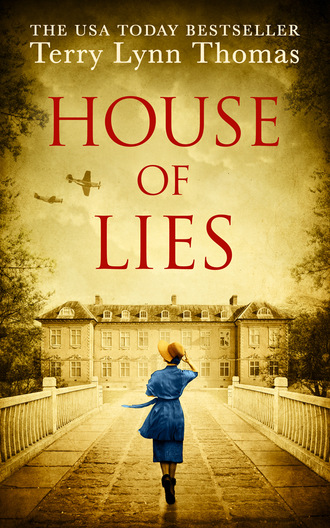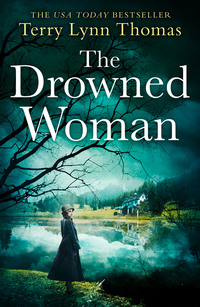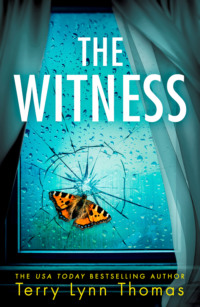
House of Lies
‘Are you quite all right, dear? You look a bit pale.’ The white-haired lady wiped off an empty table and pulled a chair out for Lucy. ‘Please, sit down. I’ll get you some tea, love. You just sit and rest.’
Lucy’s childhood had been a bumpy one. A boating accident had killed her parents when Lucy was just 13 years old. Consequently, she had grown up craving the influence of a mother figure. Her brother, bless his heart, had tried his best to see Lucy got an education and learned comportment. There had been various women over the years – usually women who were rich and beautiful – whom Lucy had tried to emulate. As such, she never really had a well-developed sense of self. When she saw Cat Carlisle at the school, impeccably dressed and so very sophisticated, she knew in an instant she wanted to be like her. Although Lucy had never been a terribly good student, she was an astute observer and had made a practice of studying Cat Carlisle’s ways. Before long, she had started to mimic Cat’s voice and her sophisticated manners.
When Lucy had met her lover, she had pretended to be as sophisticated as Cat. Her acting was successful. Her lover thought he had found someone well-to-do, educated and influential. Men were so gullible at times. Lucy had giggled about it afterwards, and had joked with her friends about how easy it was to convince the poor sod she was an heiress. The charade had been carried off without a glimmer of guilt on Lucy’s part. She imitated Cat Carlisle, pretending to be something far beyond her station in life. It only stood to reason she would attract a lover of that same ilk. Now she had to tell the truth. And she and her lover would need to marry.
She asked herself, What would Cat Carlisle do? And when the kindly woman brought her tea, she said, ‘Thank you,’ with an affected upper-class accent, removed her gloves and waited for the woman to pour for her.
The tea, along with a plate of toast and eggs, went down well and gave Lucy strength.
After thanking the woman who had been so kind to her, Lucy set out, relieved things were going as planned.
A group of boys were playing some sort of a game with sticks and rubbish bin lids. One of the boys – clearly the leader if size were any indication – stood before the group and raised his stick, holding it like a sword. ‘We’ve got dragons to slay, mates. Who’s game?’ Off they ran, shouting warrior cries, chasing their imaginary dragons. Lucy smiled as she walked past them up the lane, following the instructions given to her by the lady in the café. If she had a little boy, she hoped he would have an imagination and a gang of lads to play with.
Lucy had found her lover’s address after snooping through his wallet when he was in the shower. Later she had looked the address up on a map and memorised the directions, writing them down and then repeating them over and over in her head, until she knew them backwards and forwards. Turning down a narrow, wooded lane, she saw three cottages on either side of the street, situated far enough away from the road to provide ample privacy. All were made of the same grey stones and had a myriad of hedges and green lawn surrounding them. All the houses were well maintained, but her lover’s stood out. Several beds of rich dark soil were on the far side of the yard. Lucy recognised rows of cabbages, and a few other plants and shrubs. An old oak tree, its leaves an autumn burst of oranges and reds, was laden with acorns. As Lucy approached, two squirrels shimmied up the trunk. Gathering her courage, she stood at the end of the path and braced herself. This conversation was not going to be an easy one.
Just as Lucy was about to step onto the pathway leading to the house, the front door of the cottage opened. Some unknown force made Lucy duck out of sight and move behind a box hedge. Peering between the branches, she watched as a woman stepped into the yard carrying a basket under arm. The woman’s hair had once been blonde, but was now laced through with silver strands of grey. She wore an old tattered apron over a boring tweed skirt and a linen shirt and jumper.
Lucy watched as the woman strode across the lawn to the chicken coop, right towards Lucy’s hiding place. She held her breath, as the knowing exploded in her belly, threatening a fresh wave of nausea. Oh, how she would have loved to explain away this woman’s presence, a housekeeper or a sister, living in her lover’s house. But there was no mistaking the thick gold band around the woman’s finger. The hot salty tears ran down Lucy’s cheeks. She didn’t bother about sopping them up with her handkerchief, didn’t spend a minute worrying about her make-up. Now she knew why her lover hadn’t insisted on knowing more about her. His distance had been deliberate. Her lover, it seemed, had secrets too.
Chapter 5
Once Margaret had left the house, Hugh felt like a dark cloud had floated by, leaving him in the cleansing sunlight. After spending the morning dealing with domestic chores, namely washing the dishes, ironing his shirts – he only scorched one – and sweeping the floors, he decided to spend the rest of the day working outdoors. Earlier, he had seen a pile of logs in the dilapidated shed on the property. If he could find an axe, he could attempt to split them for firewood. Grabbing his coat, he headed outside, but instead of heading to the shed, he headed to Vera’s. Her back door stood open, as if inviting him to call on her. Surely there was no harm in saying good morning.
He found Vera on her hands and knees, a bucket of bubbles near her and a brush in her hand. He watched for a moment as she worked industriously on the floor, scrubbing like a washerwoman.
‘Hello?’ She flinched when he called out, nearly knocking the bucket over. Jumping to her knees with a spry nimbleness that surprised him, she said, ‘Good morning. You’re up early.’
‘I like the mornings. I just wanted to thank you for the food last night. I’m afraid my wife wasn’t terribly hospitable.’
‘That’s all right. Maybe I shouldn’t have dropped over without an invitation.’
‘An invitation is hereby extended. You’re welcome anytime. What are you up to today? Other than housework.’
‘Almost finished scrubbing the kitchen floor, then I need to pick the rest of my apples.’
Hugh found himself staring at Vera’s lips as she spoke, remembering their stolen kisses so very long ago.
‘Would you like to help? I can make you lunch in exchange for labour. There are ladders and bags in the shed back there. I’ll be with you in just a second.’
It took them two hours to clean the apples off the tree. They worked side by side, enjoying the fresh air and the sounds of the birds. When the apples had been picked, they sat down to bowls of fresh vegetable soup and big cups of tea. They ate in companionable silence, until Vera brought apple pie to the table and cut them each a large piece.
‘I still love apples,’ Vera said.
‘I remember your father’s orchard.’
‘He liked you,’ Vera said.
‘Have you lived here long?’
Vera nodded. ‘This was my grandmother’s house. She left it to me when she passed.’
Hugh leaned back in his chair, appreciative of the home-cooked meal and Vera’s easygoing manner.
She tossed her napkin on the table and leaned back. ‘With the exception of that summer in Scotland when I met you, most of my holidays were spent here. I was grateful to inherit this place and have come to think of Much Killham as my home. My husband hates it here. Wants to move someplace warmer.’
‘Surely you’re not leaving.’
‘No. I’m staying put. But I don’t want to talk about George and me. Tell me about yourself, Hugh. Have you had a good life?’
Vera’s direct question took Hugh aback. Had he had a good life? She poured tea for them and fussed around the kitchen, giving him time to contemplate the years that had passed.
‘Not really,’ he said. ‘I’ve been blessed with the things I need to survive, but my marriage is loveless, and as I sit here and think about your question, I realise that my life has never been my own. I’ve served, it seems, at the whim of my mother and my wife. Both of them have judged me, and both have found me wanting.’ He slapped his knee. ‘But I’m finished with them. And I’m vowing, Vera, with you as a witness, that I’m going to start living my life the way I want. Hang everyone else.’
He hadn’t realised that his words had moved her, until one lone tear spilled over onto her cheek. Without thinking, Hugh reached out and took her hand. They sat quietly for a moment, until Vera gently took her hand away and dabbed at her eyes with her handkerchief.
‘Mine hasn’t been so good either,’ she said, her voice tremulous. She tucked the handkerchief into the sleeve of her blouse. ‘I also am in a loveless marriage. George and I grew up together, knew each other since we were bairns. I didn’t have the same passion with him that I had with you, but we married right before he signed up. I’ll never forget that day in 1915 when he left on the train. Or the day he came home, for that matter. He was different. So many of them were. Oh, god, the nightmares were horrible. But I stuck by him, hoping it would get better.’ She gave Hugh a wistful glance. ‘It never did.’
‘Vera, I’m so sorry,’ Hugh said.
‘Don’t be. It doesn’t matter.’
‘He’s a fool,’ Hugh said. ‘I’d give my eye teeth to have a wife like you.’
‘Thank you,’ Vera whispered. She turned to face him, her eyes soft, her face full of warmth and friendship. ‘Enough sentimentality. I’ve got some things for you to take home. If you could reach that basket for me.’ She nodded to a tall set of shelves against the wall. Hugh took down a basket and waited while Vera packed it full. She wrapped newspaper around glass jars of apple butter, added a cabbage, four eggs, two jars of peas and half a loaf of bread.
‘Thank you,’ Hugh said.
Vera laughed. ‘You’re the one who deserves thanks. I’d still be up on the ladder picking away if it weren’t for you. We’ll call it a trade,’ she said.
Surprised to see it was nearly three o’clock, Hugh thanked her again, took the basket, and headed back to his own empty cottage. The chill in the air reminded him of the firewood he would need to get through the evening. He hurried to the shed and got busy, chopping until his arms ached.
Hugh discovered the news of Martin Shoreham’s suicide quite by accident. It wasn’t until early evening, just as the sun went down, that Hugh unpacked Vera’s basket. He unwrapped the newspaper from the jars of apple butter and was so focused on putting things away, he nearly missed Martin’s picture. The photo was an old one, taken at Christmas about five years ago. The original photo had been of Martin, Hermione and their three boys. Hugh knew this because he had taken the picture himself. Curious, he flattened the paper and read the headline. ‘Prominent Industrialist Commits Suicide.’ He grabbed the counter, holding himself upright with a white-knuckled grip. The paper was a day old, which meant Martin had killed himself right after Hugh and Margaret had left.
Martin. Dead.
He opened his last bottle of good Scotch and took a long drink, right from the bottle, letting it numb the feeling of worry that had taken hold. What had Margaret and Martin been discussing so earnestly at the party? Whatever she said had distressed him. Had Martin given her that money? Taking the stairs two at a time, Hugh stood in the threshold of Margaret’s room.
He pulled her big trunk away from the wall and opened the lid, rifling through the clothing that wouldn’t fit in the wardrobe. Turning to the small writing desk, he opened the only drawer. There wasn’t anything there. He tried to push it shut, but something was caught. Taking the drawer out, he felt around until his fingers landed on a batch of what felt like crumpled papers, but was actually a regular-sized envelope. He tore a chunk of the corner while extricating the envelope from the drawer. Heart pounding, he took the envelope downstairs and sat down on the couch to read the letter written in Martin Shoreham’s familiar handwriting.
Margaret,
I see you’ve found my family. You know full well that if Hermione were to discover that I kept another woman and that we had children together, she would be destroyed. I also know that you’ve never been one to consider the feelings of others, especially when you stand to gain financially. If it weren’t for Hugh, I would take your letter to the police. Blackmail is a crime, but I would never subject Hugh to the embarrassment of your actions. You should be ashamed of yourself. Please know that I have no intention of giving you any more money. You know that I have a mistress. You know that we have a child. I have already paid you handsomely for your silence, but if you choose to disregard our agreement, you may proceed as you wish. But know this. If you ever come near me or my family again, I will report you to the police and use my not insignificant influence to see you ruined legally, financially and socially.
A bitter taste flooded Hugh’s mouth. He hurried to the sink and vomited there, heaving until he was empty. His thoughts turned to Hermione. If Hugh told her what Margaret had done, Martin’s betrayal would come to light. When it did, Hermione would be devastated. She would be forced to deal with the embarrassment, the anger and the betrayal on her own. There would be no chance to confront Martin, no chance for healing and forgiveness, no chance to honour all the years they had before Martin betrayed her.
What if he took the letter to the police and reported Margaret’s blackmail? Blackmail was a criminal offence, wasn’t it? But better judgement prevailed. No police. At least not now. He would deal with Margaret himself. The time for reckoning had come.
Конец ознакомительного фрагмента.
Текст предоставлен ООО «ЛитРес».
Прочитайте эту книгу целиком, купив полную легальную версию на ЛитРес.
Безопасно оплатить книгу можно банковской картой Visa, MasterCard, Maestro, со счета мобильного телефона, с платежного терминала, в салоне МТС или Связной, через PayPal, WebMoney, Яндекс.Деньги, QIWI Кошелек, бонусными картами или другим удобным Вам способом.
Приобретайте полный текст книги у нашего партнера:




